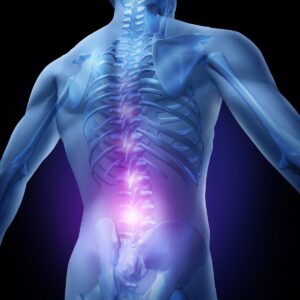CAUDA EQUINA SYNDROME
If you suffer from pain, weakness, or loss of function related to cauda equina syndrome, please Schedule an appointment with one of our orthopedic specialists as soon as possible.
 What is Cauda Equina Syndrome?
What is Cauda Equina Syndrome?
Brain and Spine Specialists define Cauda equina syndrome as an emergency situation in which severe compression damages the nerve root of the lower spine, cutting off sensation and movement.
Patients with this syndrome will require immediate attention from a Brain and Spine Specialist to relieve pressure on the nerves before permanent damage can set in. Unattended, this syndrome can result in permanent loss of lower body movement, loss of bladder and bowel control, loss of sexual sensation, and other issues.
What Causes Cauda Equina Syndrome?
Cauda Equina Syndrome can occur due to many conditions, including:
- Herniated discs
- Tumors
- Infection
- Severe Fractures
- Spinal Stenosis (Narrowing of the spinal canal)
Indication Of Cauda Equina Syndrome
Severe, sharp, or shooting pain often manifests in the lower back, buttocks, or legs, radiating down the back of the thighs and calves. Leg weakness makes it difficult to move one or both legs, affecting the ability to walk, stand, or lift the feet. Additionally, people may feel numbness or a “pins and needles” sensation in the buttocks, genital area, inner thighs, or legs. Some experience a loss of sensation in the saddle area, inner thighs, or back of the legs.
Bladder or bowel dysfunction occurs, presenting as difficulty urinating, urinary retention, loss of bladder or bowel control, or a loss of sensation related to these functions. Sexual dysfunction appears as decreased sensation, erectile dysfunction, or difficulty achieving orgasm in men, and decreased sensation or difficulty achieving orgasm in women. Lastly, altered reflexes, such as decreased or absent reflexes in the lower extremities like the ankle or knee reflex, may occur.
It is crucial to seek immediate medical attention if cauda equina syndrome is suspected, as early intervention is vital to prevent permanent neurological damage. Prompt diagnosis and treatment can help alleviate symptoms and improve long-term outcomes.
Treatment For Cauda Equina Syndrome
Treating cauda equina syndrome typically involves surgical intervention to relieve nerve compression and restore normal function. The specific procedure depends on the syndrome’s underlying cause. For example, a discectomy involves removing a herniated disc, while tumor removal addresses neoplastic causes. In cases of spinal stenosis, a decompressive laminectomy, which widens the spinal canal, may be necessary. Sometimes, emergency surgery is required to prevent permanent paralysis or other irreversible complications.
Recovery varies based on the compression’s severity and the duration of symptoms before treatment. Early surgical intervention significantly improves the chances of a better outcome. However, some individuals may face long-term complications, such as persistent weakness, sensory deficits, or bladder and bowel dysfunction. Post-surgery rehabilitation, including physical and occupational therapy, pain management, and psychological support, plays a crucial role in the recovery process. This aims to enhance the quality of life and maximize functional independence.
Recovery for Cauda Equina Syndrome

 What is Cauda Equina Syndrome?
What is Cauda Equina Syndrome?